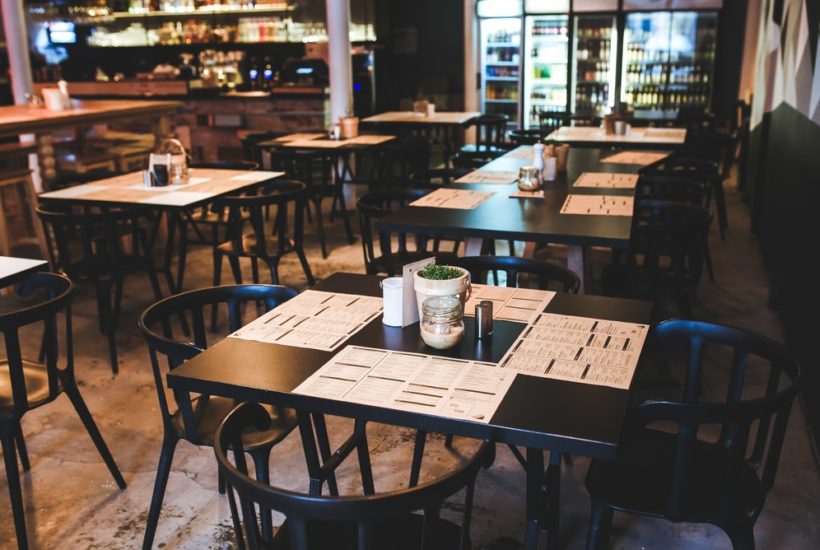Featured
‘Digital’ catering, the fintech SumUp acquires Tiller
The fintech company SumUp has recently acquired Tiller. Thanks to the technology developed by Tiller, which allows to manage the entire sales process from order to delivery, up to reservations, companies in the restaurant industry have been able to quickly adapt to new consumer habits and regulations during the pandemic, offering a checkout service and easily activating online orders.

During the health emergency, Italian and European restaurateurs have had to reinvent themselves, adopt delivery and take-away formulas or look for new original methods to maintain the relationship with customers. In order to manage the entire process, the use of digital management tools has been invaluable. One of the most popular services in this sense is that offered by Tiller, a company that has now been acquired by SumUp, a digital payments fintech that adds another piece to its long-term strategy in the restaurant sector.
Read more on the subject and find other important financial headlines with our companion app Born2Invest.
A strategic acquisition for SumUp
Tiller is in fact a major player in Italy, France, and Spain: it supports more than 9,000 merchants. Its acquisition positions SumUp as one of the leading players in the digitization of restaurateurs and retailers in Europe: the fintech already offers its services to more than 1,500,000 businesses, with another 5,000 businesses added every day worldwide, and has an annual turnover of $240 million (€200 million). Now it will have more innovative solutions to support a strategic sector such as the restaurant industry, which needs to simplify its processes to make its business as sustainable as possible.
The one with Tiller is just the latest in a series of strategic agreements concluded by SumUp with the intention of strengthening its product portfolio with specific tools for small merchants: it comes, in fact, after the acquisition in 2018 of Debitoor (accounting and invoicing), in 2019 of Shoplo (e-commerce), and in 2020 of Goodtill (catering and hospitality).
Thanks to the technology developed by Tiller, which allows to manage the entire sales process from order to delivery, up to reservations, companies in the restaurant industry have been able to quickly adapt to new consumer habits and regulations during the pandemic, offering a checkout service and easily activating online orders.
To have chosen Tiller’s functions are, among others, realities such as Barmare in Milan, La Filetteria Italiana, Atelier De Nerli and ICHI station. Also SumUp has implemented solutions and products to support artisans and merchants in facing the restrictions imposed by the health crisis. The introduction of link payments and invoicing tools and the ability to sell vouchers through Google, Facebook and Instagram have allowed small business owners to receive payments securely.
According to Maximilian Stella, Vice President New Ventures at SumUp, “in the face of an active partnership since 2015, we have observed over the past few years Tiller’s exceptional journey and technology. Tiller is already well established in the main markets where SumUp is present such as Italy, France and Spain. We are confident that together we will be able to offer increasingly effective solutions to merchants in the restaurant and hospitality sector, which are driving the Italian economy, and to grow further in new markets.”
Dimitri Farber, founder of Tiller, added: “Tiller’s mission has always been to support merchants and restaurateurs in their daily life and in the digitalization of the point of sale. The year 2020 has further manifested this need throughout Europe. Together with SumUp, Tiller will be able to strengthen its action by addressing all types of merchants worldwide. This is part of the shared vision from the very beginning of this partnership, but also part of the common values that are part of the corporate culture. This last factor is essential for Tiller having determined, since its foundation, the success and productivity of our teams who are its ambassadors and guarantors.”
__
(Featured image by kaboompics.com via Pexels)
DISCLAIMER: This article was written by a third party contributor and does not reflect the opinion of Born2Invest, its management, staff or its associates. Please review our disclaimer for more information.
This article may include forward-looking statements. These forward-looking statements generally are identified by the words “believe,” “project,” “estimate,” “become,” “plan,” “will,” and similar expressions. These forward-looking statements involve known and unknown risks as well as uncertainties, including those discussed in the following cautionary statements and elsewhere in this article and on this site. Although the Company may believe that its expectations are based on reasonable assumptions, the actual results that the Company may achieve may differ materially from any forward-looking statements, which reflect the opinions of the management of the Company only as of the date hereof. Additionally, please make sure to read these important disclosures.
First published in FORTUNE, a third-party contributor translated and adapted the article from the original. In case of discrepancy, the original will prevail.
Although we made reasonable efforts to provide accurate translations, some parts may be incorrect. Born2Invest assumes no responsibility for errors, omissions or ambiguities in the translations provided on this website. Any person or entity relying on translated content does so at their own risk. Born2Invest is not responsible for losses caused by such reliance on the accuracy or reliability of translated information. If you wish to report an error or inaccuracy in the translation, we encourage you to contact us.

-

 Crypto2 weeks ago
Crypto2 weeks agoRipple Launches EVM Sidechain to Boost XRP in DeFi
-

 Impact Investing6 days ago
Impact Investing6 days agoShein Fined €40 Million in France for Misleading Discounts and False Environmental Claims
-

 Impact Investing3 days ago
Impact Investing3 days agoVernazza Autogru Secures €5M Green Loan to Drive Sustainable Innovation in Heavy Transport
-

 Cannabis2 weeks ago
Cannabis2 weeks agoCannabis Company Adopts Dogecoin for Treasury Innovation













